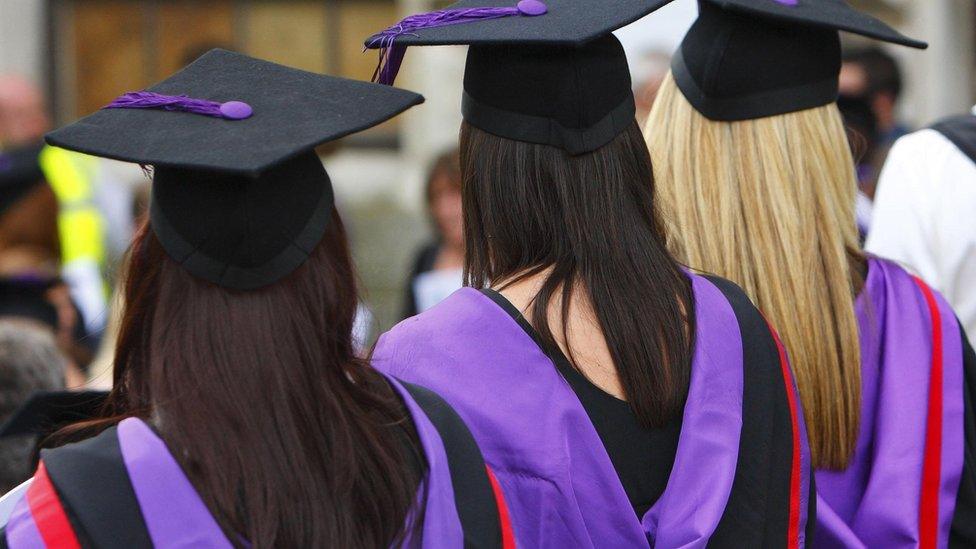The 'underprivileged kid' who became a university boss
- Published
Peter Mathieson: "If you are a kid, like I was, from an underprivileged background, in an under-performing school, then someone has to take care of your interests and your wishes."
The principal of Edinburgh University has a personal interest in widening access to higher education.
As a teenager, Peter Mathieson encountered sceptics when he said he wanted to study medicine.
Some wondered if this was a realistic option for someone from his background.
He described himself as "a kid from an underprivileged background at an underperforming school".
Today Prof Mathieson is discussing how Edinburgh University can attract more students from disadvantaged parts of Scotland.
Students who can stand as equals alongside those whose parents always expected them to go to university and those from abroad who wanted to go to a university with an enviable international reputation.
This year, for the first time, 11% of new undergraduates at Edinburg h University are from the most disadvantaged parts of Scotland, so-called SIMD20 areas.
Widening access has become a mantra in recent years - the Scottish government expects a fifth of students at all universities to come from SIMD20 areas by 2030.

Of course, widening access itself is nothing new. No mainstream politician in modern times would have dared suggest for a moment that university should not be open to any young person of ability.
It was the reason governments started to provide financial support for students. It was the reason for the great expansion of higher education in the 1960s when new universities were established. And it was the reason polytechnics became universities in the 1990s.
But still, a relatively small proportion of students at most Scottish universities come from disadvantaged areas and the Scottish government has set ambitious short and long term targets.
Postcode measurement
I spoke to Prof Mathieson at length about the challenges and ways forward.
Firstly, I asked him about the very issue of using the applicant's postcode area as a measure of disadvantage.
There are, I said, young people in virtually every community who have faced personal disadvantage while a young person who grew up in a disadvantaged area may not have lost out personally.
"There is an ongoing discussion about the validity of SIMD20 as the yardstick we should be using. It is the one we have used and the one the Scottish government currently emphasises," he said.
He did not condemn the use of SIMD20 but said disadvantage itself was a much more sophisticated issue than the postcode.
He said: "We want to be even more sophisticated about our widening participation work so it's not just about postcode, it's also about household income and about educational achievement of schools and of parents."

What is Peter Mathieson's story?
Educated at a state grammar school in Penzance, Cornwall
He was the first member of his family to go to university
Peter studied medicine at the London Hospital Medical College, graduating in 1983.
A research training fellowship at the University of Cambridge led him to being awarded a PhD in 1992.
In 1995 he moved to Bristol where he became foundation Professor of Renal Medicine at the University of Bristol. Over the next two decades he held various posts at the University of Bristol and North Bristol NHS Trust.
In April 2014, Peter became president and vice-chancellor of the University of Hong Kong, a post he held until January 2018.
In February this year he took up his post as principal and vice-chancellor of the University of Edinburgh.

Universities, I suggested, can give the impression they are already doing many of the right things - paying less attention to school exam results and sending out students to their old schools so they can act as role models.
Can universities do even more? Or is the onus now on schools to raise attainment?
"I don't think we do think we are doing everything we can do," he told me.
"We've made a good start but there is more we can do.
"I quite agree the emphasis needs to be not just on applicants to university but much earlier. Thinking about primary schools, parents, communities so we get the idea of university education across much earlier."
'Happy but not satisfied'
Prof Mathieson was keen to stress that he wanted to ensure disadvantaged students actually succeeded once they got to university - he would be sorry if they were to struggle with the work or drop out.
He is adamant widening access does not mean lowering standards but I asked him about the progress being made towards what are called "contextualised admissions".
In layman's terms, universities say they will pay less attention to school results when they decide whether to offer a candidate a place. Instead they will look more closely at the young person's qualities and potential.
Prof Mathieson said he was "happy but not satisfied" with the progress being made and gave a specific example of a change Edinburgh was making.
"At the moment Edinburgh is the only university in the UK which does not interview for access to places in medicine," he explained.
"We're changing that as we believe interviewing in some shape or form adds something to our ability to assess people's ability."
The number of Scots at university is around a historic high but every summer after the exam results some spare places are available through the clearing system to fee-paying applicants from England, Wales and Northern Ireland - but not to Scots who get free tuition.
So, given a cap exists, does continuing to increase the number of students from SIMD20 areas risk making it harder for others to get a place?
He said the concerns of some parents about the clearing system was "understandable" but that there was also the issue of fairness and that someone had to take care of the interests of underprivileged.
"Like all high performing universities we turn away students who are perfectly capable of studying with us," he said.

While many at Scottish universities are deeply worried about the overall impact of leaving the European Union, there is one specific aspect of Brexit which some have argued might be turned to their advantage.
At present a small proportion of the free places paid for by the Scottish government go to students from other EU countries - this is necessary to comply with European law.
In the longer term should these places go to Scots? New EU students would then pay fees, in the same way as students from other parts of the UK and countries outside Europe?
Prof Mathieson's answer is thoughtful.
He is keen to stress how welcome EU students are and how much they bring to the life of the university.
He said the university has been trying to get some clarity about what will happen to the quota that is currently occupied by EU students.
One potential use of funding, he said, could be for scholarships to help EU students come here but there was also an opportunity for the number of Scottish students to be increased.
Today Edinburgh University has reached a milestone on its journey towards increasing the number of students from disadvantaged areas.
Whenever a milestone is reached on a long walk, it can be a chance to reflect on the journey so far and the challenges ahead.
- Published31 October 2018
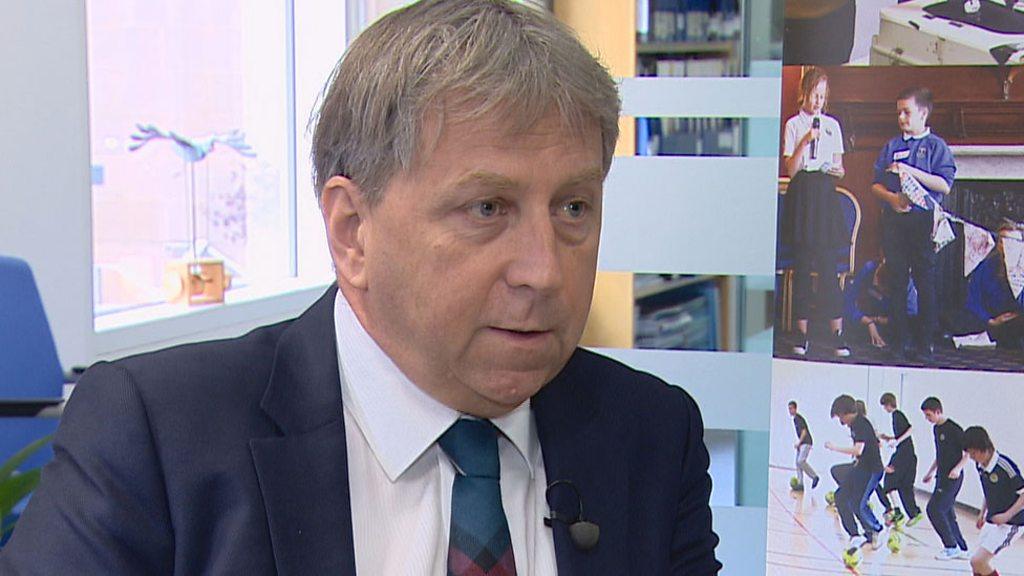
- Published31 October 2018
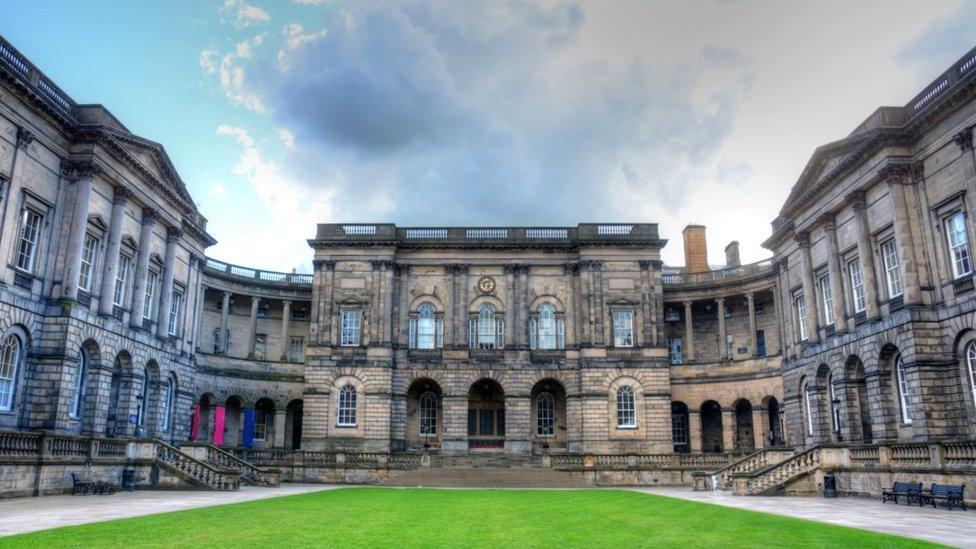
- Published8 August 2018
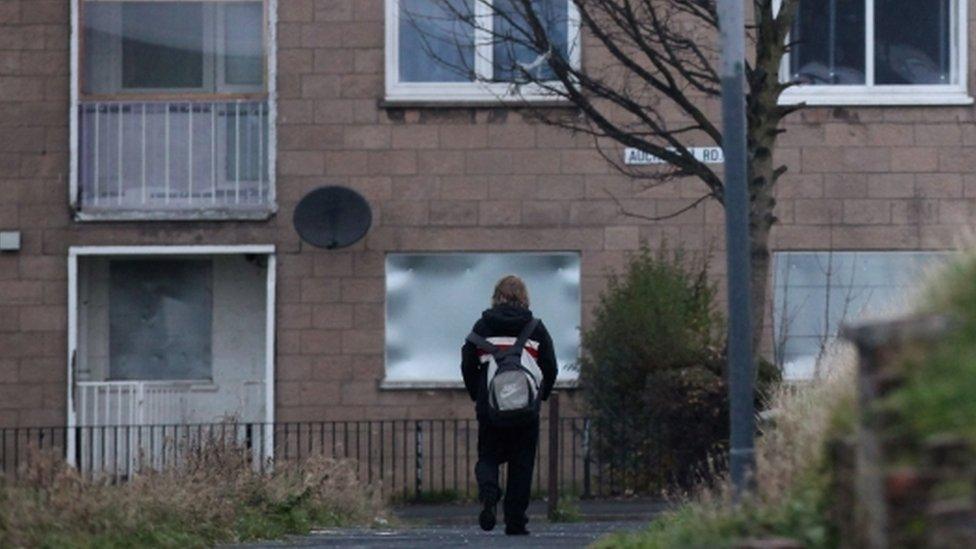
- Published26 May 2018

- Published16 May 2018
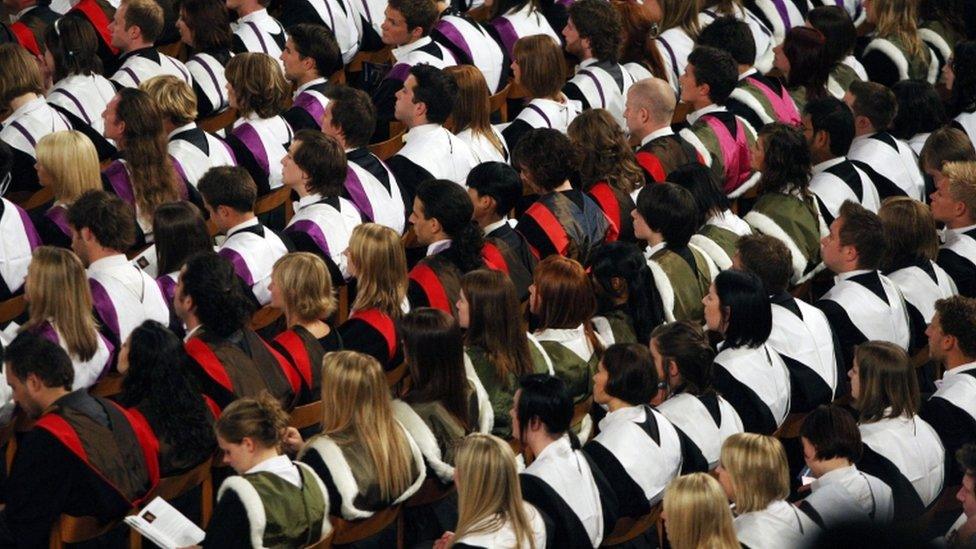
- Published5 February 2018
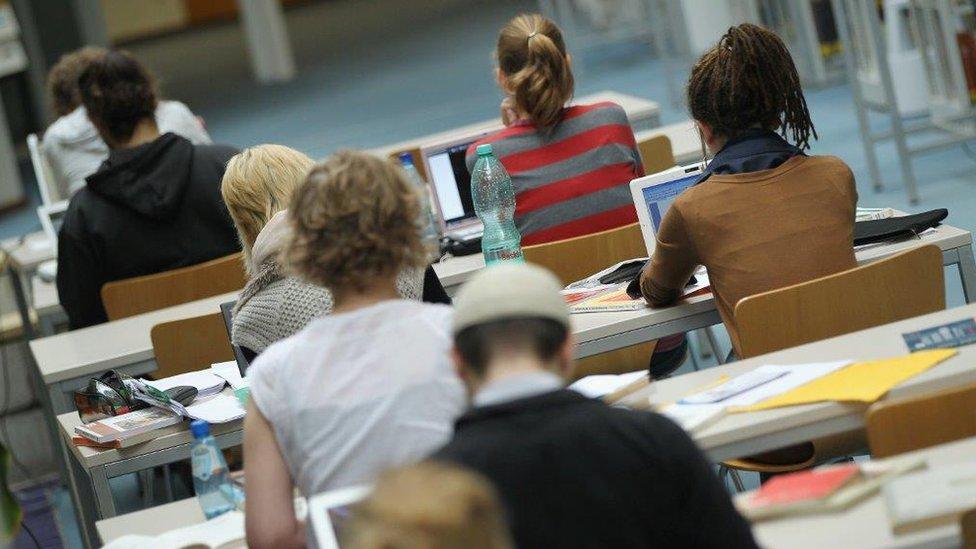
- Published14 November 2017

- Published31 October 2017

- Published26 October 2017
